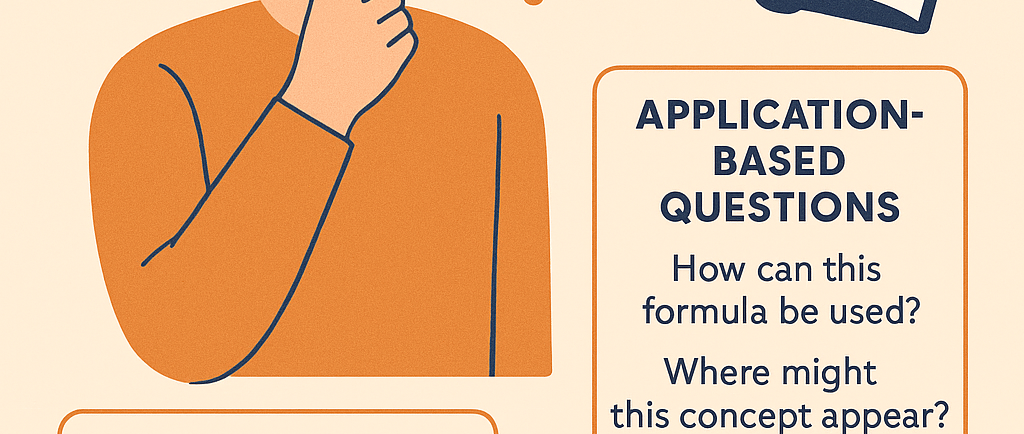The Art of Asking Questions for Exams


– A Powerful Skill for Better Learning and Higher Scores
In the journey of academic success, students often focus heavily on memorising facts, solving problems, and revising notes. However, one of the most underrated yet powerful skills is the art of asking questions. Whether it’s during self-study, in the classroom, or while revising, asking the right questions can significantly boost understanding, retention, and exam performance.
Why Asking Questions Matters
Questions are the bridge between information and understanding. When a student actively questions what they read or hear, they’re not just passively consuming knowledge—they’re engaging with it. This process strengthens memory, reveals gaps in understanding, and encourages deeper thinking.
In exams, questions determine everything. But what many students overlook is this: those who know how to form and predict questions perform better. They study more strategically because they understand how information is likely to be tested.
Types of Questions Students Should Ask
Clarifying Questions:
“What does this term mean?”
“Why is this process important?”
These help clear confusion and build foundational understanding.Application-Based Questions:
“How can this formula be used in real problems?”
“Where might this concept appear in a case study?”
Such questions train your brain to use knowledge practically, which is essential for exams.Predictive Questions:
“What kind of question could come from this topic?”
“Can I frame this paragraph into a one-mark, two-mark, and five-mark question?”
These help you anticipate the examiner’s mind and prepare more effectively.Comparison Questions:
“How is this different from that?”
“What are the advantages and disadvantages of this method?”
These improve critical thinking and are great for long-answer questions.
How to Practice This Art
Use the Textbook Like an Examiner:
While studying a chapter, ask yourself, “If I were to set a paper from this, what questions would I ask?”Discuss with Peers:
Group studies become more effective when students challenge each other with questions. This creates active recall and strengthens memory.Create Question Banks:
While revising, write your own questions and try answering them. This not only tests your understanding but prepares you for the real exam pattern.Ask Teachers Questions:
Never hesitate to raise doubts in class. A good question can lead to better clarity not just for you, but for everyone.
Conclusion
The art of asking questions is more than just a learning strategy—it’s a mindset. It turns you from a passive reader into an active learner, from a crammer into a thinker. The more thoughtful your questions, the sharper your answers will be in exams. In the end, it’s not just about studying harder, but studying smarter—and that begins with asking the right questions.
